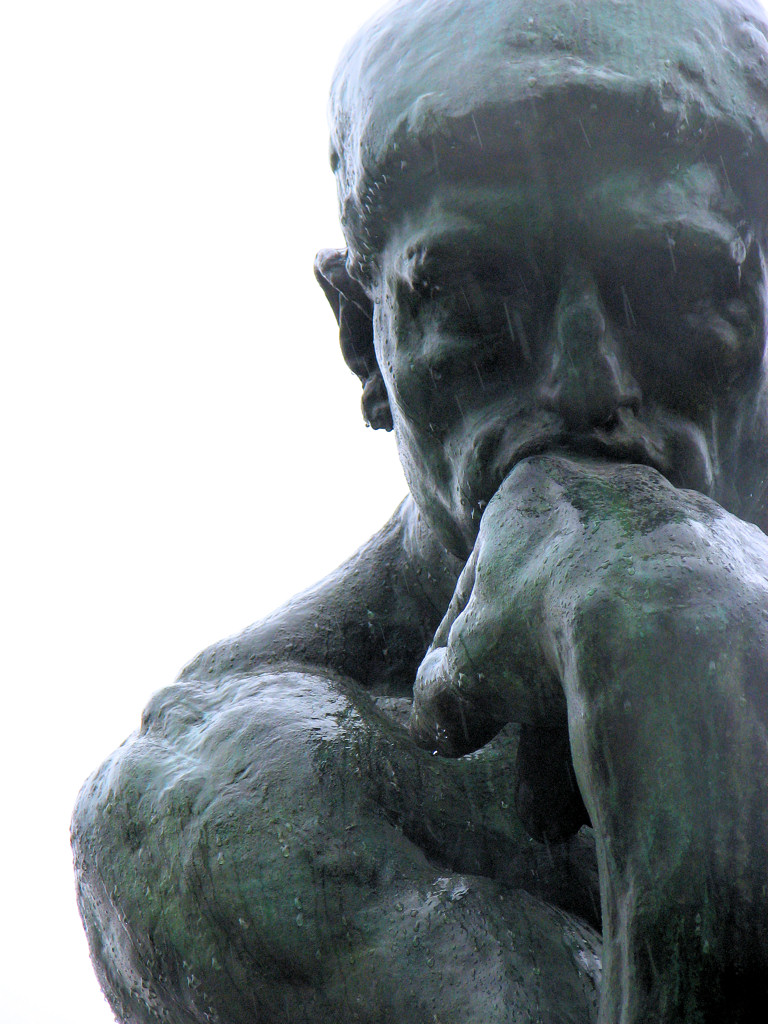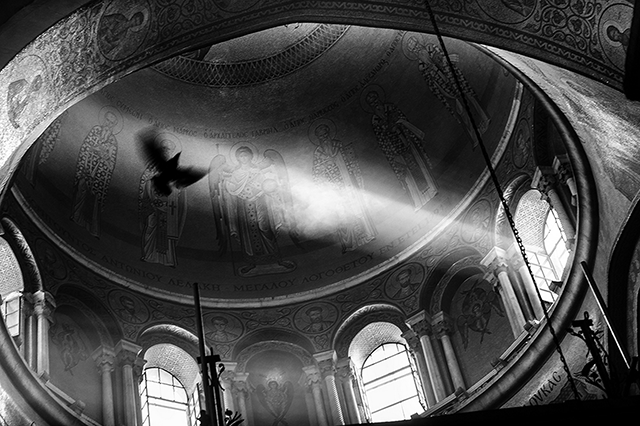Philosophers have an expression that has always been more aspiration than actuality. It reflects what I think we all want, whether we’ve spent decades in philosophical inquiry or are simply doing the best we can: a fair and sympathetic hearing.
 A question seized me while still in my teens, which I devoted the better part of the next 20 years pursuing almost obsessively. I’d done everything in my youth from being a janitor to selling door to door (both conducive to doing philosophy), but the first focus was always ‘the question.’
A question seized me while still in my teens, which I devoted the better part of the next 20 years pursuing almost obsessively. I’d done everything in my youth from being a janitor to selling door to door (both conducive to doing philosophy), but the first focus was always ‘the question.’
The thread that ran through everything I did however was this question: Given that nature unfolds in seamless wholeness, how is it that Homo sapiens, which evolved in nature and through the same processes as all other life, is essentially operating increasingly antithetically to nature, dividing and fragmenting the earth and ourselves all to hell?
I don’t know why such a question would take hold in the mind and heart of a 19-year-old kid, but it did. The boy who asked that question seems like another person to me now.
I read everything I could in Western and Eastern philosophy, and talked with everyone I could in anthropology, philosophy and religion, but nothing and no one gave a satisfactory explanation for the human existential contradiction and conundrum. At some point I realized I was alone, in uncharted territory.
That realization fired rather than deterred my investigation. I didn’t doubt the validity of the question, and the perception and premise of nature’s seamless wholeness and man’s increasing disorder.
Finally, after 15 years of persistent questioning, study and observation, there was an insight that provided philosophical clarity and resolution, and another insight that provided a capstone to my quest.
Having felt I’d resolved what used to be called the ‘riddle of man,’ I naively went to the chairs of philosophy departments at three of the best schools in California—Stanford, Berkeley, University of California Davis. Doing so seems absurd to me now, but to their credit these men (and philosophy departments were still 99% men at that time), they heard me out.
I was looking for a way to flesh out my insights and formulate them in an acceptable, academically respectable way. One of the chairmen bluntly told me, “There’s nowhere in the world where you can do what you want to do.”
Still undeterred, I began taking classes at the University of Oregon, one of the few ‘Continental’ (European style) programs in the United States. Over 90% of American post-graduate programs were, and still are as far as I know, of the ‘Analytical School.’ (Don’t get me started.)
After a year I’d risen to the top of the crop of post-graduate students, which is a function of respect for philosophical talent by profs and fellow students rather than grades, which were pass/fail. But though I loved the classes and seminars, something was missing.
At that point I was privileged to participate in a series of dialogues over a long weekend with the late David Bohm, a brilliant physicist turned philosopher later in life, a man whom Einstein had called his ‘intellectual son.’
Bohm was pursuing questions in a similar vein about man’s non-fit with nature, and I’d written him a dozen-page letter outlining my proposed insights.
We engaged, mostly through my questions, for three days. I was blown away by his intellect, and didn’t have the nerve to approach him and ask if he received my letter.
To my surprise he came up as everyone was leaving and said, “I received your letter.” Realizing that one doesn’t get many opportunities like this in a lifetime I came right to the point. ‘Do you think I’ve done it, do you think I’ve resolved the riddle of man?’ I boldly asked.
“Yes,” he said to my surprise. We talked about things for a few minutes, and I had the presence of mind to ask, ‘What do I do with it?’ “Just don’t make another philosophical system out if it,” came his succinct reply.
I instantly saw the truth of what he was saying, which I understood to mean: ‘Don’t make another competing system of thought out of it.’ Since without realizing it that was what was bothering me about graduate work, my academic ambitions ended then and there.
Nearly three decades later, the insights hold up, and I’m sure will eventually carry the day in understanding our place in nature. But I’m still looking for a fair and sympathetic hearing.
I’m not holding my breath in a society that has completely gone to hell and is taking the rest of the world with it. The right questions still aren’t being asked.
Martin LeFevre

